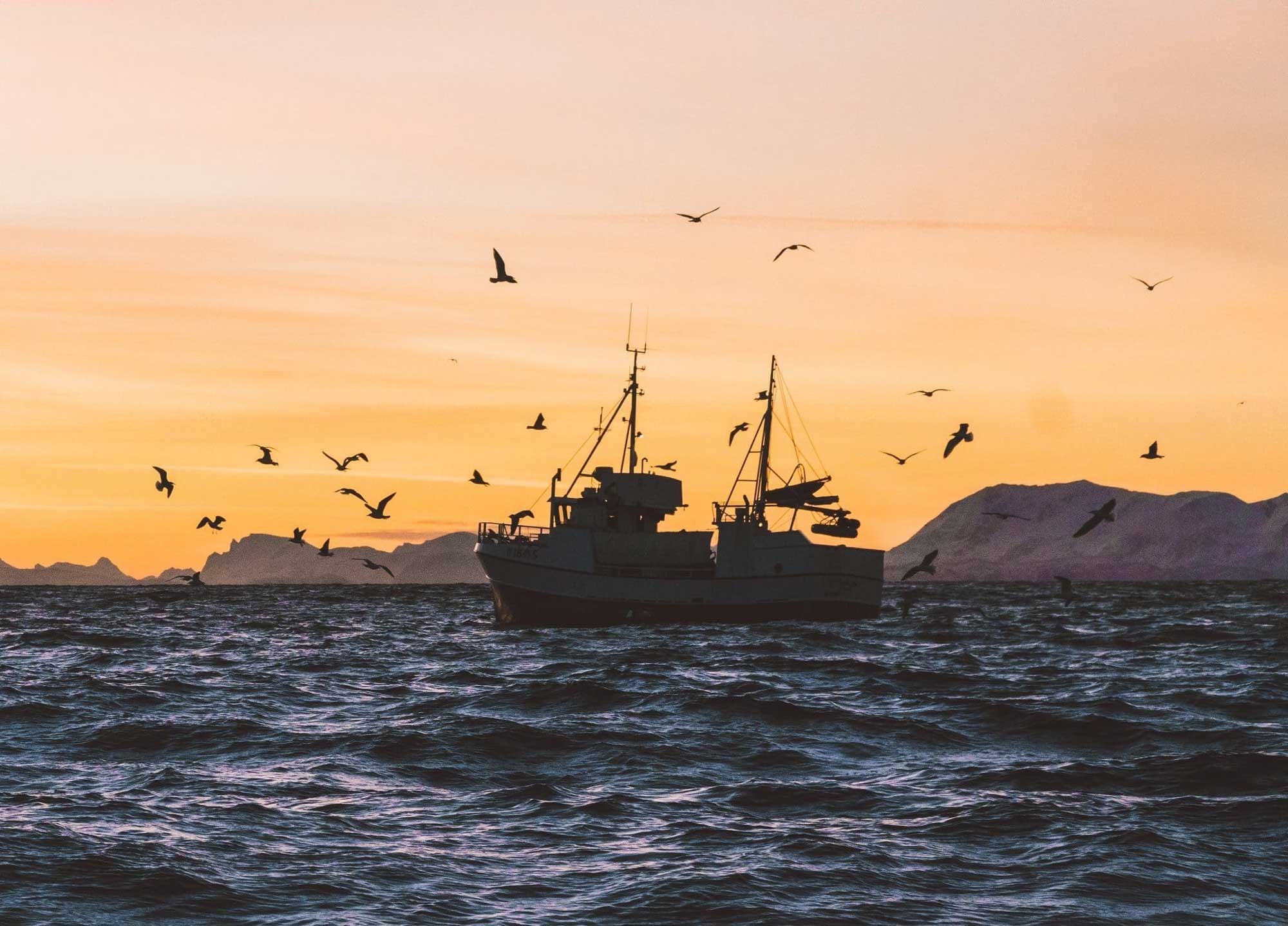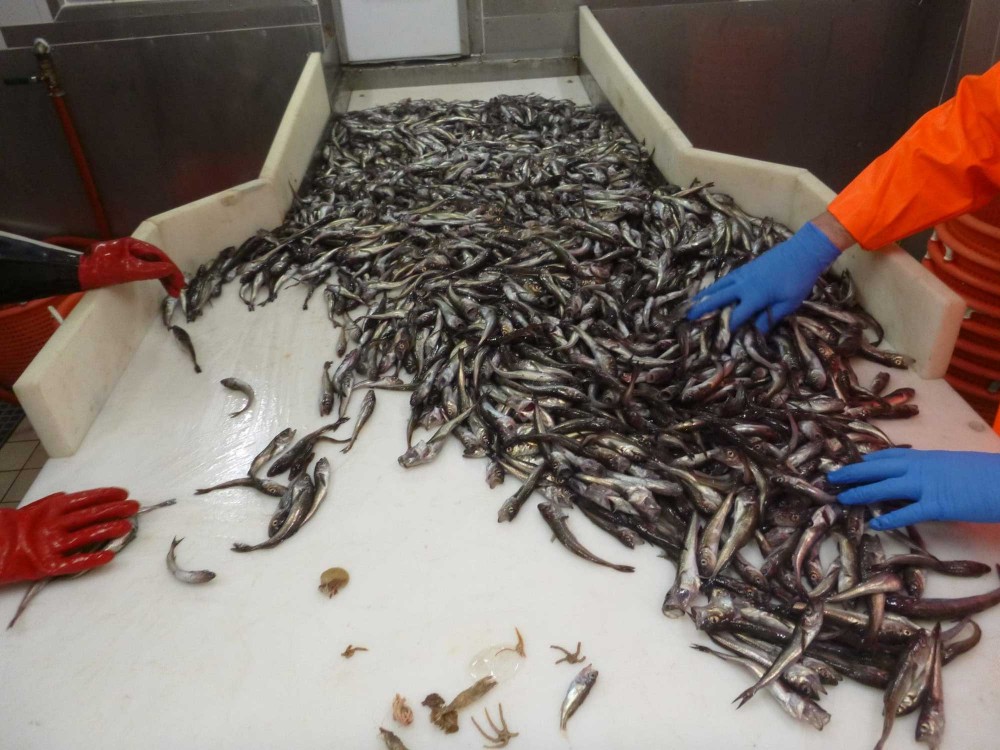
Can the fish in the ocean handle marine heatwaves?
By: Ellen Kathrine Bludd // UiT The Arctic University of Norway
Researchers have investigated whether fish in the sea are affected by marine heatwaves. Their research was published last summer in the journal Nature. The surprising finding was that marine heat waves have generally not had lasting effects on the fish communities that support many of the world’s largest and most productive fisheries.
“As of now, we see no effects of marine heatwaves on the fish communities,” says Laurène Pecuchet, associate professor at UiT The Arctic University of Norway and one of the researchers behind the study. “But we know that fish communities are affected by temperature, and heatwaves could still affect fish in the future.”

248 marine heat waves
The researchers used data from long-term scientific trawl surveys on the continental shelves of North America and Europe from 1993 to 2019. The period analysed included 248 marine heatwaves with extreme sea bottom temperatures.
ADVERTISEMENT
The trawl surveys were carried out by towing a net above the seafloor, to look at the amounts of bottom-dwelling species that include commercially important fish species such as flounder, pollock, haddock, redfish, and halibut. Around 82,000 different trawls are included in the study with over 1,700 different fish species from both the Pacific and Atlantic oceans.
The researchers looked for effects on fish biomass and composition of species in the fish community the year after a marine heat wave. To their surprise, they found no evidence that marine heat waves generally have major effects on regional fish communities.
“There is an emerging sense that the oceans have some resilience, and while they are changing in response to climate change, we don’t see evidence that marine heatwaves are wiping out fisheries.”
Alexa Fredston, lead author and associate professor at the University of California at Santa Cruz.
Although declines in biomass did occur after some marine heatwaves, the researchers found that these cases were the exception, not the rule. Overall, they found that the effects of marine heatwaves are not distinguishable from the natural variability in these ecosystems.
Fish find hiding places
Laurène Pecuchet says that this is the first study on heatwaves in the ocean that has studied the effect on fish species that live far out at sea.
“Fish move and they can find hiding places where the water is a little colder,” says Pecuchet.
She explains that in coastal areas the situation can be worse. Clearly, there are species that do not move, such as kelp and coral, but there are also fish that live in one location for most of the year. These areas and these species are more affected by such temperature changes.
“Cod that migrate (called skrei in Norway) may not be as strongly affected by heatwaves as coastal cod, which don’t migrate as much,” says Pecuchet.
She emphasises that this has not yet been studied in detail.

Tropical sea
In addition to assessing the impact on biomass, the researchers looked at whether marine heatwaves caused changes in the composition of fish communities. For instance, they might lead to a loss of species associated with cold water and an increase in species associated with warm water. The researchers call this phenomenon tropicalisation.
“Tropicalisation has been associated with long-term warming of the oceans, but we saw no signs that this is the case with marine heatwaves,” Pecuchet says.
The researchers defined marine heatwaves as periods of more than five days of unusually high sea bottom temperatures for that region and time of year. By extracting the effects of long-term ocean warming trends, they were able to distinguish episodes of extreme warming on top of the long-term trends. “The findings suggest that fish may be able to find safe harbours by moving to areas with cooler water during these extreme events,” says the marine biologist.
There is still hope
Pecuchet says that temperatures in the North Atlantic in 2023 were the warmest ever recorded, and that this past summer is not included in the data the researchers used in this study.
In the so-called Paris Agreement, most of the world’s countries agreed that we must work together to ensure that the average global temperature does not increase by more than 1.5 degrees Celsius above pre-industrial levels.
“If anything, this study shows the importance of staying below 1.5 degrees. Today we are about 1 degree warmer than pre-industrial levels, and it seems that the fish are dealing with the effects of the heatwaves at the present time. But we don’t know what the effect will be if the temperature continues to rise. As long as we stay below a 1.5-degree increase, there is still hope, but that means reducing emissions drastically.”
Laurène Pecuchet, associate professor at UiT The Arctic University of Norway
The Barents Observer Newsletter
After confirming you're a real person, you can write your email below and we include you to the subscription list.


